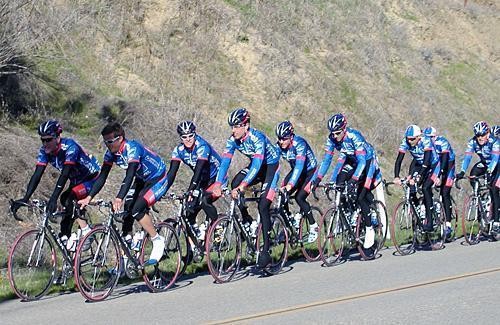Del Moral denies involvement in Armstrong doping case
Ex-US Postal doctor "never witnessed organised doping"

Despite being named as providing banned doping substances and methods by no fewer than nine of his former riders, Dr. Luis Garcia Del Moral denies having been a part of doping on the US Postal Service team of Lance Armstrong.
In a statement to EFE, Del Moral, who recently was banned for life by the US Anti-Doping Agency after failing to request arbitration to fight the charges brought against him, said that his role as a doctor for the team, "was to preserve the health of the riders and technical staff and control the physical performance of cyclists."
Del Moral was brought into the US Postal Service team by Johan Bruyneel in 1999, the two having formerly been part of the ONCE team.
Del Moral confirmed that he was contacted by USADA on June 13, 2012 to answer to the accusations of several former teammates of Armstrong, which in the end included statements by Frankie Andreu, Jonathan Vaughters, George Hincapie, Christian Vande Velde, Tyler Hamilton, Floyd Landis, David Zabriskie, Michael Barry and Levi Leipheimer, all of whom stated that Del Moral provided them with doping products or methods.
Del Moral said he was offered immunity in exchange for testimony against Armstrong by USADA.
"During those years there were no doping positives within the team, nor injury or illness resulting from my medical action, then or later."
"During the years that I was US Postal team doctor, I never witnessed any organized team doping, much less promote or facilitate it," he said.
The latest race content, interviews, features, reviews and expert buying guides, direct to your inbox!
Del Moral claims that he requested more time to respond to the USADA charges, arguing that the agency had no jurisdiction over him as he is not a US citizen, and had no connection to the team after 2003.
After refusing to testify against Armstrong, Del Moral received notice that the agency had banned him for life.
He said that the agency's final report into his activities was "based on statements full of suspicions and subjective interpretations, without any proof."
